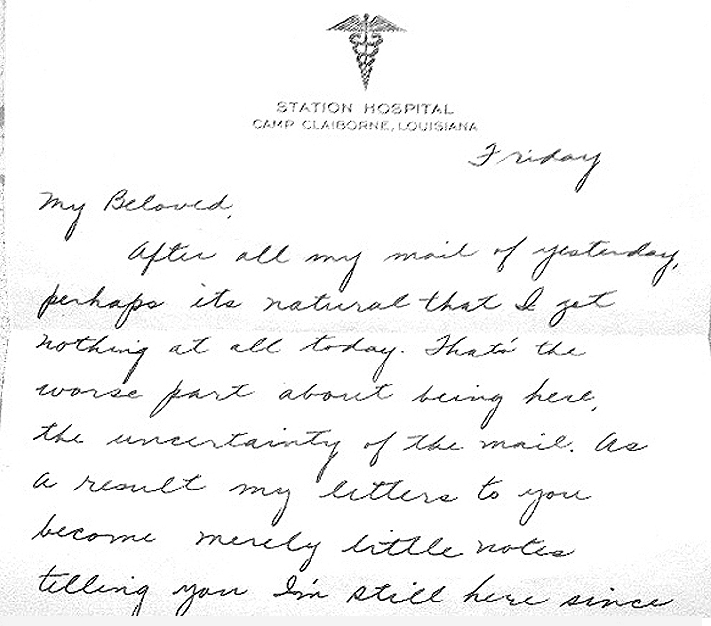Project Description
Will my grandchildren be able to read their great grandfather's letter?
During one of the recent polar vortex school closings, someone posted on Facebook about having to help her daughters read a recipe card. Her daughters are excellent readers who are in grades 3 and 6. So why couldn’t they read the neatly written directions? Well, because they were written … in cursive.
January 23rd is National Handwriting Day. In honor of the occasion, maybe I’ll write my grandkids a letter. But wait, I’d better use my computer because they will not be able to read my handwriting. And there is something profoundly sad about that.
Cursive writing is rapidly disappearing from our lives. Two years ago when my granddaughter was in third grade, I remember a handwriting book that was part of her homework. At least she learned to sign her name that year. I’m not sure her little sister, currently in third grade, will learn to do that.
I asked a friend who is a third grade teacher about this. She was not surprised the handwriting book was no longer sent home. She explained that there is no time to teach cursive writing anymore. It is not part of the Common Core State Standards. There is no test to see if a child can write her name. And teaching cursive will do nothing to improve the school’s or teacher’s year-end rating, but higher test scores will.
When I suggested not even being able to sign your name to a letter, document, greeting card, or check was sad, she set me straight. You can print your name, and no one writes checks or sends hand-written letters or snail-mail cards anymore. And most documents permit e-signatures. Beautiful handwriting takes a lot of time to learn, is not easy for kids with motor challenges, and is a dying art.
She had me there. Perhaps because my hands are a bit arthritic or perhaps because I am too much in love with my computer, I don’t write too many things by hand anymore. I’m more likely to compose a personal letter on Word and print it out than write it by hand. But I still like to sign my name at the bottom.
It suddenly hit me, however, that if my grandchildren never learn to write in cursive, they will also be unable to read it. They will never be able to decipher things I wrote by hand and saved to show them. My old recipe cards will also need to be translated for them. They will never be able to read the stash of WWII letters my parents wrote to each other. If they do original research that involves pre-21st century documents, will they need an interpreter for the handwritten ones?
All of this makes me rather depressed. Someone has decided that our schools shouldn’t waste much time teaching things that don’t matter like cursive writing or art appreciation or literary classics. There won’t be a test on these things and they won’t get kids the jobs of the future. Ours is a disposable society and we are fine with tossing aside the things that are not practical for the college or career.
Maybe I should start transcribing my parents’ letters so they are not lost to their great grandchildren. There is probably no point in saving those hand-written family recipes or the things I wrote in cursive in the pre-computer era. Either type them into the computer or toss them.
Readers, am I crazy to think this matters?
If reading the grandfather’s letter matters to you, here it is. Click to enlarge the image.

Laurie Levy invites you to join her Facebook community and subscribe to her newsletter
Laurie Levy, M.Ed., has worked over 30 years in the early childhood profession. She is a strong believer in diversity and the rights of children with special needs, and a passionate advocate for children. Through her writing, she seeks to empower parents and educators, and create caring and just communities. She was founder and executive director of Cherry Preschool, an innovative developmental program that includes and celebrates all children. Her personal experiences as the grandparent of children with special needs, as well as her many years working for inclusion, have made her an advocate for the rights of those who cannot speak for themselves. Laurie is a regular blogger at ChicagoNow.
This piece was reprinted by EmpathyEducates with permission or license. We thank the Author, Laurie Levy for her kindness, sapient thoughts, and inspirational reflection.










